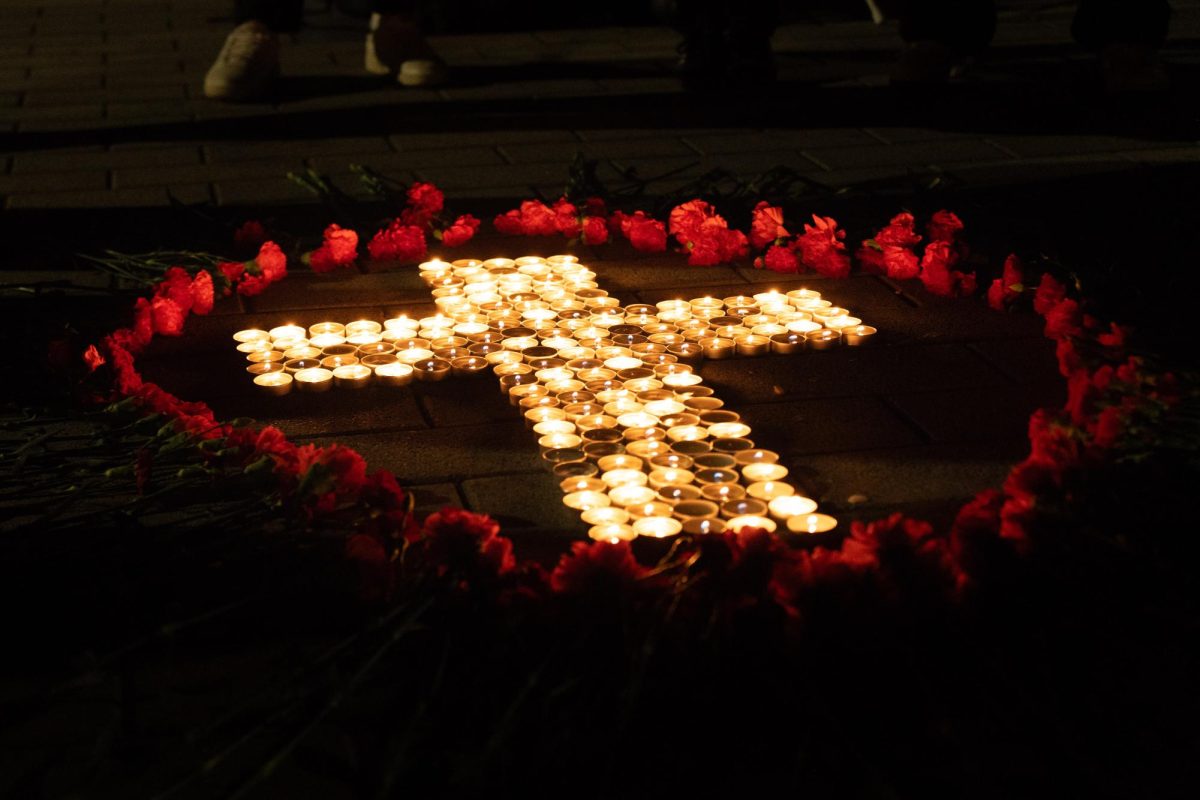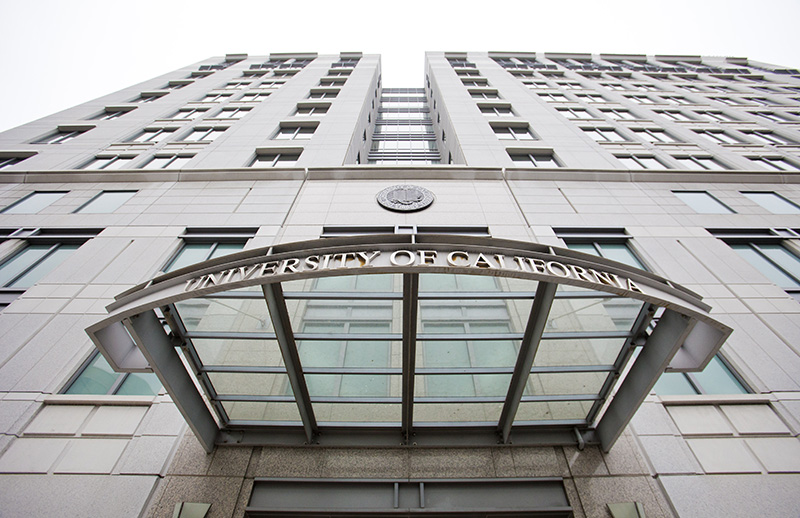On Nov. 19 at 8 p.m., approximately 40 students gathered in front of Geisel Library for a vigil hosted by the Armenian Student Association in honor of the ongoing Nagorno-Karabakh conflict.
Karine Grigoryan, the advocacy chair for the ASA, spoke on the importance of the vigil. “As the Armenian Student Association, we strive to raise awareness about these atrocities, which have displaced thousands and led to the systematic destruction of our cultural and religious heritage,” she said.
Two signs were taped to a tree in front of Geisel Library. One read “Your Silence is Compliance,” while the other said, in Armenian, “Persevere Until the End.” Attendees also held signs that read “Stop the Cycle of Genocide,” “#ArtsakhISArmenia,” and “#ArtsakhStrong2025.”
Artsakh, also known as Nagorno-Karabakh, is within Azerbaijan’s internationally recognized borders but has historically had a majority ethnic Armenian population. Historically, it was part of Armenian kingdoms and dynasties, giving it deep cultural and religious significance to Armenians. In 1923, under Soviet rule, Artsakh was designated an autonomous province within the Azerbaijan Soviet Socialist Republic.
In September 2020, Azerbaijan launched a large-scale 44-day military campaign, reclaiming significant parts of the region. A ceasefire brokered by Russia in November 2020 reduced Artsakh’s territory and brought it under Azerbaijani control. In September 2023, Azerbaijan carried out a brief military operation that forced the remaining Armenian population to flee Artsakh. This has led to the displacement and ethnic cleansing of more than 120,000 Armenians.
David Djalayan, president of the ASA, spoke about how the conflict is destroying Armenian culture and history.
“The ongoing humanitarian crisis in Artsakh has led to the destruction of historical churches, cultural landmarks, homes, and countless Armenian lives,” he said. “These irreplaceable pieces of Armenian history and identity are being systematically erased.”
“Our people’s right to exist is still under threat, and we, as advocates for them, must speak up and educate our communities about the atrocities taking place. Innocent children, women, and men, along with students, like ourselves, are losing their lives at the hands of dictatorial regimes,” Grigoryan said.
Countries like France and the United States have expressed concerns over Azerbaijan’s military actions and human rights violations in Artsakh. The U.S. Senate and the European Union have considered sanctions against Azerbaijani officials, but this has failed to stop the violence.
“I want people to understand that Armenia desperately needs global attention,” Djalayan said. “The power to address these injustices often rests in the hands of politicians, leaving many Armenians feeling helpless. However, as members of the Armenian diaspora, the most impactful action we can take is to spread awareness and educate the broader public.”
The vigil ended with an Armenian Christian prayer and participants placing carnations around candles arranged in the shape of a cross.
The Armenian Student Association plans to hold future events to advocate and raise awareness about the conflict in Artsakh.
“After the vigil, we plan to continue advocating for Artsakh through educational programs and initiatives that shed light on the ongoing threats to Armenian heritage and the forced displacement of the region’s people,” Grigoryan said. “This includes collaborating with various Armenian organizations, such as the Armenian National Committee of America and the Armenian Assembly of America.”








